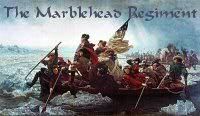So don't say it if you don't want to!
SAN FRANCISCO - A federal judge declared the reciting of the Pledge of Allegiance in public schools unconstitutional Wednesday, a decision that could put the divisive issue on track for another round of Supreme Court arguments.America is a Christian Nation, founded as a Christian Nation. Saying the Pledge of Allegiance is not an exercise in promoting Christianity. No one is forced to say it. No one if forced to believe it.
The case was brought by the same atheist whose previous battle against the words "under God" was rejected last year by the Supreme Court on procedural grounds.
U.S. District Judge Lawrence Karlton ruled that the pledge's reference to one nation "under God" violates school children's right to be "free from a coercive requirement to affirm God."
Karlton said he was bound by precedent of the 9th U.S. Circuit Court of Appeals, which in 2002 ruled in favor of Sacramento atheist Michael Newdow that the pledge is unconstitutional when recited in public schools.
The Supreme Court dismissed the case last year, saying Newdow lacked standing because he did not have custody of his elementary school daughter he sued on behalf of.
---
The order would not extend beyond those districts unless it is affirmed by the 9th Circuit, in which case it could apply to nine western states, or the Supreme Court, which would apply to all states.
The decision sets up another showdown over the pledge in schools, at a time when the makeup of the Supreme Court is in flux.
Wednesday's ruling comes as Supreme Court nominee John Roberts faces day three of his confirmation hearings before the Senate Judiciary Committee. He would succeed the late William H. Rehnquist as chief justice.
In July, Sandra Day O'Connor announced her plans to retire when a successor is confirmed.
The Becket Fund, a religious rights group that is a party to the case, said it would immediately appeal the case to the San Francisco-based 9th U.S. Circuit Court of Appeals. If the court does not change its precedent, the group would go to the Supreme Court.
"It's a way to get this issue to the Supreme Court for a final decision to be made," said fund attorney Jared Leland.
The decisions by Karlton and the 9th Circuit conflict with an August opinion by the 4th U.S. Circuit Court of Appeals in Richmond, Va. That court upheld a Virginia law requiring public schools lead daily Pledge of Allegiance recitation, which is similar to the requirement in California.
A three-judge panel of that circuit ruled that the pledge is a patriotic exercise, not a religious affirmation similar to a prayer.
"Undoubtedly, the pledge contains a religious phrase, and it is demeaning to persons of any faith to assert that the words `under God' contain no religious significance," Judge Karen Williams wrote for the 4th Circuit. "The inclusion of those two words, however, does not alter the nature of the pledge as a patriotic activity."
If one believes in Christianity, then one can certainly view it as a sort of prayer. I do, but I don't care if the person down the street does not. That is his perview.
By disallowing the use of the Pledge of Allegiance in public schools and places, activist judges are basically denying the majority their religious freedom. Perhaps they should read the First Amendment. It gives us "freedom of religion," not freedom from religion. If you want that I suggest you move to Russia or China.
 I Remember
I Remember
















































<< Home